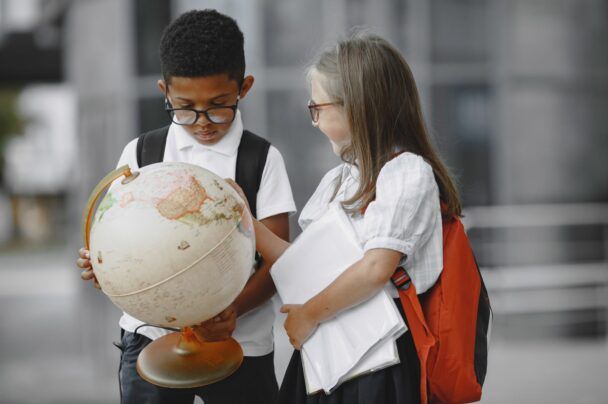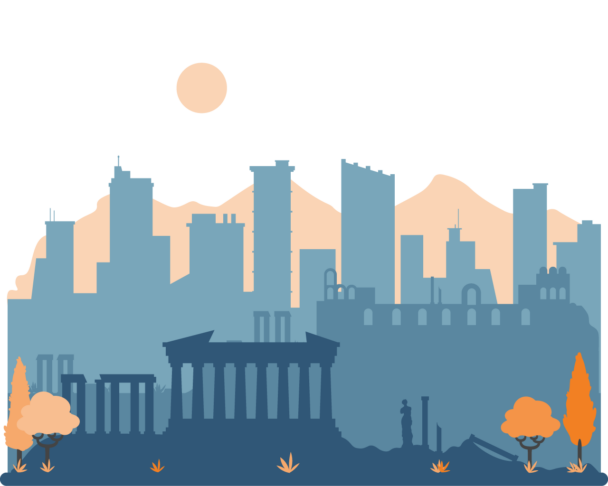Description
In an era marked by political, economic, and social upheavals, schools, teachers, and students face the pressing need to equip themselves with the values and skills necessary to navigate diverse and democratic societies.
The rise of populism, violent extremism, and discrimination in European societies highlights the urgency for education to play a role in fostering democratic citizenship and countering the divisive forces that threaten societal harmony.
This course is designed to address the aforementioned challenges by introducing participants to the Reference Framework of Competences for Democratic Culture (RFCDC), a comprehensive model outlined by the European Council in 2018.
The main objective of the course is to familiarize participants with the values, attitudes, skills, knowledge, and critical understanding required for active citizenship in culturally diverse democratic societies.
Completing the course will empower educators to integrate these competencies seamlessly into educational systems, fostering a culture of democracy from pre-school to vocational education.
During the course, participants will be engaged in a systematic approach to design teaching, learning, and assessment strategies for competencies in democratic culture and intercultural dialogue.
Activities will include an in-depth exploration of the conceptual Model of CDC, the practical application of descriptors for each competence, and the development of learning/teaching activities using various pedagogical approaches.
Emphasis will be placed on a “whole school” approach, incorporating the RFCDC into curricula, pedagogy, and assessment planning across different educational levels.
By the end of the course, participants will be capable of implementing the RFCDC effectively. They will acquire the competence to relate the aims of the RFCDC to their education institutions, employing a variety of pedagogical approaches.
Participants will gain the ability to design and implement learning activities aligned with the competencies for democratic culture, fostering an environment conducive to democratic citizenship.
Ultimately, the course ensures that educators emerge equipped with the competencies necessary to address the challenges highlighted in diverse societies, promoting human rights, democracy, and the rule of law.
What is included
Learning outcomes
The course will help the participants to:
- Identify the values, attitudes, skills, knowledge, and critical understanding, the four pillars of the CDC model;
- Develop competencies for democratic culture enabling them to tackle a range of challenges related to bullying, prejudice, and discrimination in their schools and classrooms successfully;
- Integrate the development of competencies for democratic culture and intercultural dialogue into their school mission;
- Promote the development of competencies in their classrooms by organizing a wide variety of pedagogical approaches and activities.
Tentative schedule
Day 1 – Course introduction
- Introduction to the course, the school, and the external activities;
- Icebreaker activities;
- Identification of needs and goals for each participant;
- Presentations of the participants’ schools;
- Group discussion and reflection on the concepts of democracy, inclusion, and intercultural education;
- The whole-school/inclusive approach as a context to develop a democratic school culture and intercultural dialogue.
Day 2 – An introduction to the Reference Framework of Competencies for Democratic Culture (RFCDC)
- Key concepts and the four pillars of the model of competencies for democratic culture;
- Group discussion, activities, and reflection on the values, attitudes, skills, knowledge, and critical understanding of the CDC model.
Day 3 – The descriptors of competencies for democratic culture
- Exploring the CDC model descriptors;
- Introduction to the RFCDC Teacher Reflection Tool;
- Self-assessment of individual competencies for democratic culture.
Day 4 – Teaching, learning, and assessing competencies for democratic culture
- Pedagogical approaches and activities to develop clusters of CDC in everyday context;
- Principles on the assessment of CDC;
- Designing and sharing a situated learning activity connected to the CDC model.
Day 5 – Addressing challenges in school with the RFCDC
- Focusing on discrimination, violence, and bullying;
- Designing a session plan regarding the challenges participants face in their schools.
Day 6 – Course closure and cultural activities
- Course evaluation: round-up of acquired competencies, feedback, and discussion;
- Awarding of the course Certificate of Attendance;
- Excursion and other external cultural activities.


